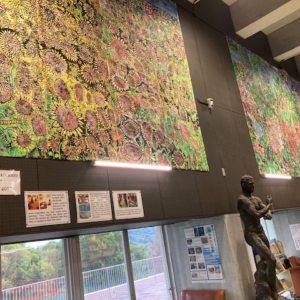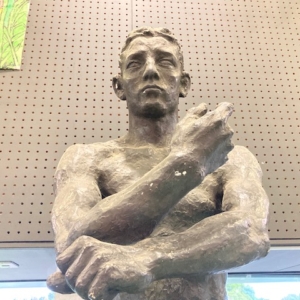Yesterday (October 28), NHK’s Close-Up Gendai featured a program titled “AI Robots: A Revolution in Nursing Care.” It explained that in the near future, robots will take over household chores such as cleaning, laundry, and ironing.
A friend of mine, who recently went to Los Angeles to watch a Dodgers game, told me that the taxi he rode in was already self-driving. He even sent me a video of it—it truly felt like a glimpse of the future.
At Okinawa AMICUS, we also held an in-school workshop on AI this Monday (October 27). To my surprise, the material used was a “newsletter” I had written for our staff. The AI instantly summarized the letter I had spent hours writing, and then a voice-AI began discussing and sharing opinions about its content. I couldn’t help but think, “AI has really come this far.”
Witnessing such developments made me reflect deeply. As AI and robots take on more intellectual and physical work, I can’t help but wonder what will remain uniquely human. Perhaps what AI can never replace are our aesthetic sense, sensitivity, and emotional depth.
Interestingly, each year some parents of AMICUS students tell me that they decided to enroll their child after seeing our library. In the past, I used to think, “It’s a bit strange to decide based on the library alone.” But after seeing how AI and automation are evolving, and after our recent AI training session, I think I now understand what they meant.
This morning, I visited the library again. Sitting there, I could feel how the space truly awakens one’s senses. The large woodblock prints, beautiful paintings, statues, and other student creations fill the room. Flags representing our teachers’ home countries hang proudly, and outside the window stretches the lush greenery of the “AMICUS Forest.” It is a space where knowledge and emotion coexist.
Students pass through the library almost every day—on their way to class, P.E., or music lessons. Even if they don’t intend to, their eyes naturally catch the titles on the bookshelves, nurturing an interest in reading. According to our librarian, Ms. Shimabukuro, the sofa seats by the windows are especially popular with the students.
This morning, I was once again reminded of how wonderful the AMICUS library is. It is a place filled with the warmth of human creativity—something no AI could ever produce—and countless opportunities to cultivate rich sensitivity and emotion.



